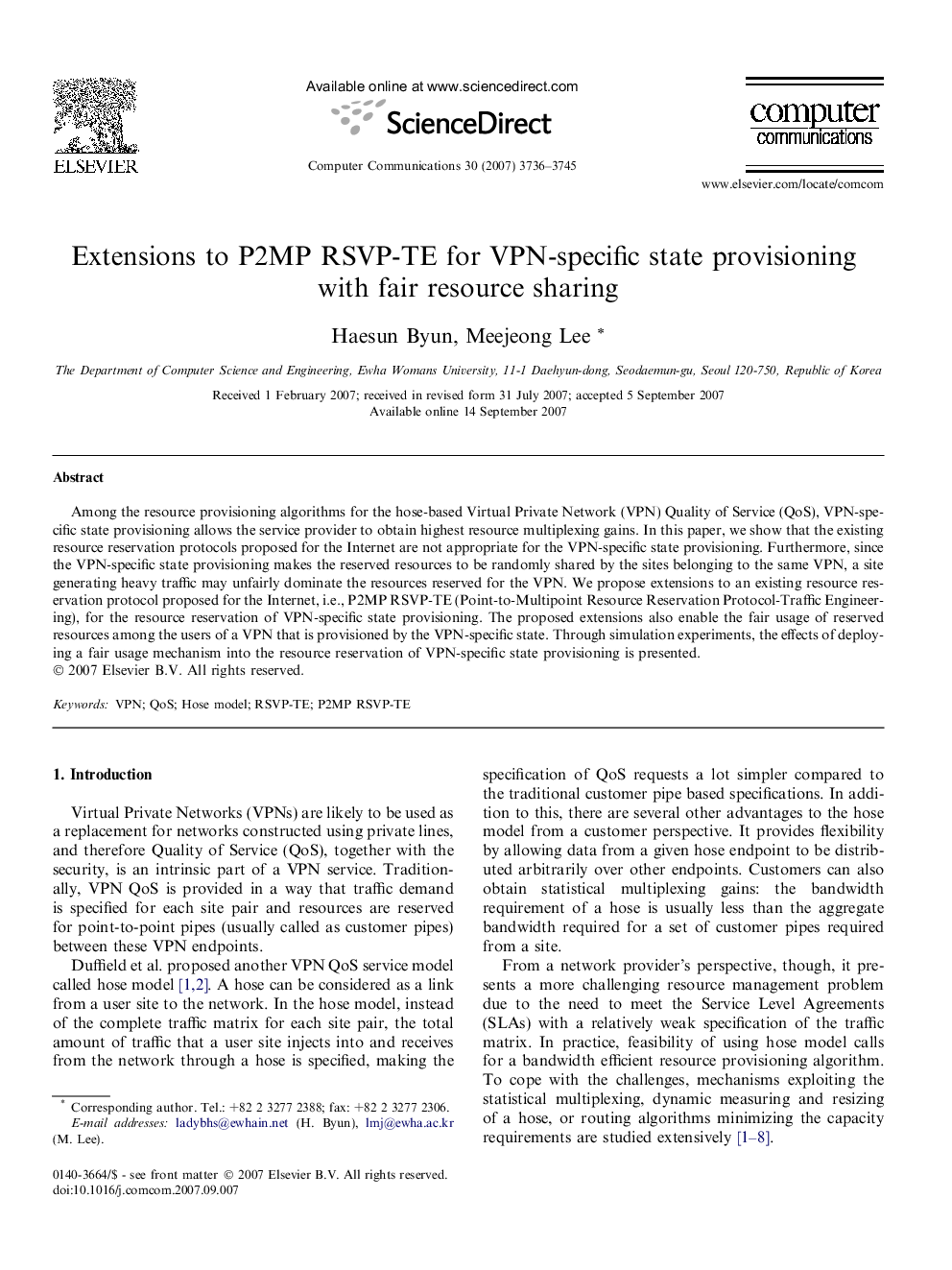| Article ID | Journal | Published Year | Pages | File Type |
|---|---|---|---|---|
| 449592 | Computer Communications | 2007 | 10 Pages |
Among the resource provisioning algorithms for the hose-based Virtual Private Network (VPN) Quality of Service (QoS), VPN-specific state provisioning allows the service provider to obtain highest resource multiplexing gains. In this paper, we show that the existing resource reservation protocols proposed for the Internet are not appropriate for the VPN-specific state provisioning. Furthermore, since the VPN-specific state provisioning makes the reserved resources to be randomly shared by the sites belonging to the same VPN, a site generating heavy traffic may unfairly dominate the resources reserved for the VPN. We propose extensions to an existing resource reservation protocol proposed for the Internet, i.e., P2MP RSVP-TE (Point-to-Multipoint Resource Reservation Protocol-Traffic Engineering), for the resource reservation of VPN-specific state provisioning. The proposed extensions also enable the fair usage of reserved resources among the users of a VPN that is provisioned by the VPN-specific state. Through simulation experiments, the effects of deploying a fair usage mechanism into the resource reservation of VPN-specific state provisioning is presented.
